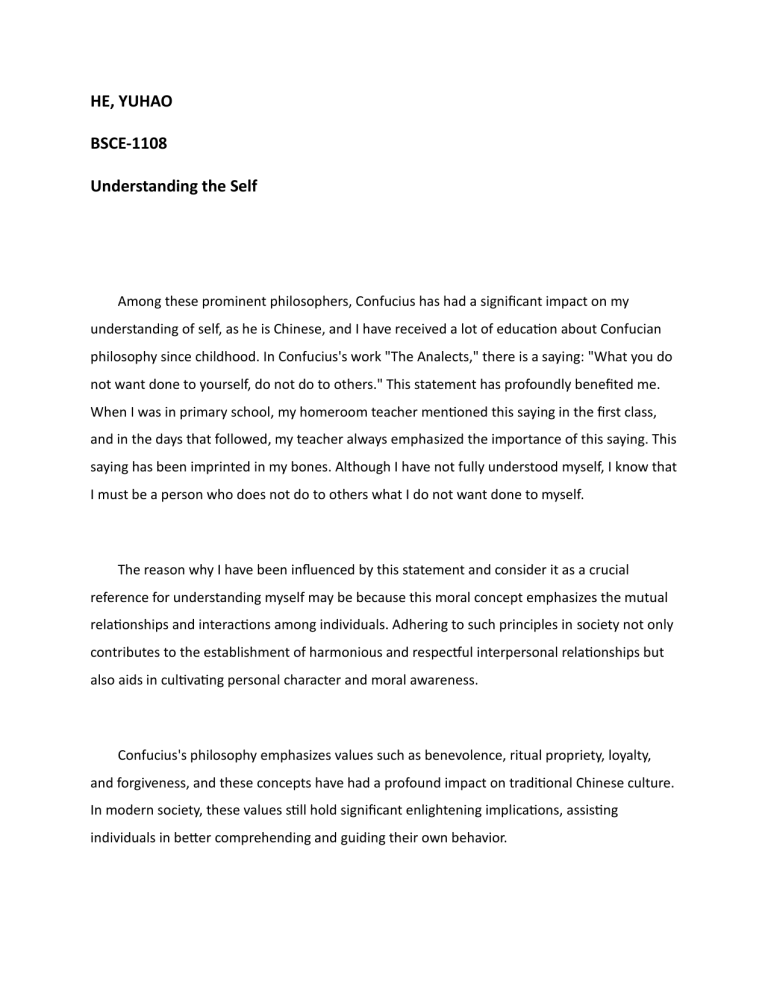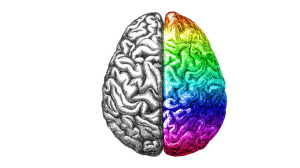
HE, YUHAO BSCE-1108 Understanding the Self Among these prominent philosophers, Confucius has had a significant impact on my understanding of self, as he is Chinese, and I have received a lot of education about Confucian philosophy since childhood. In Confucius's work "The Analects," there is a saying: "What you do not want done to yourself, do not do to others." This statement has profoundly benefited me. When I was in primary school, my homeroom teacher mentioned this saying in the first class, and in the days that followed, my teacher always emphasized the importance of this saying. This saying has been imprinted in my bones. Although I have not fully understood myself, I know that I must be a person who does not do to others what I do not want done to myself. The reason why I have been influenced by this statement and consider it as a crucial reference for understanding myself may be because this moral concept emphasizes the mutual relationships and interactions among individuals. Adhering to such principles in society not only contributes to the establishment of harmonious and respectful interpersonal relationships but also aids in cultivating personal character and moral awareness. Confucius's philosophy emphasizes values such as benevolence, ritual propriety, loyalty, and forgiveness, and these concepts have had a profound impact on traditional Chinese culture. In modern society, these values still hold significant enlightening implications, assisting individuals in better comprehending and guiding their own behavior.




